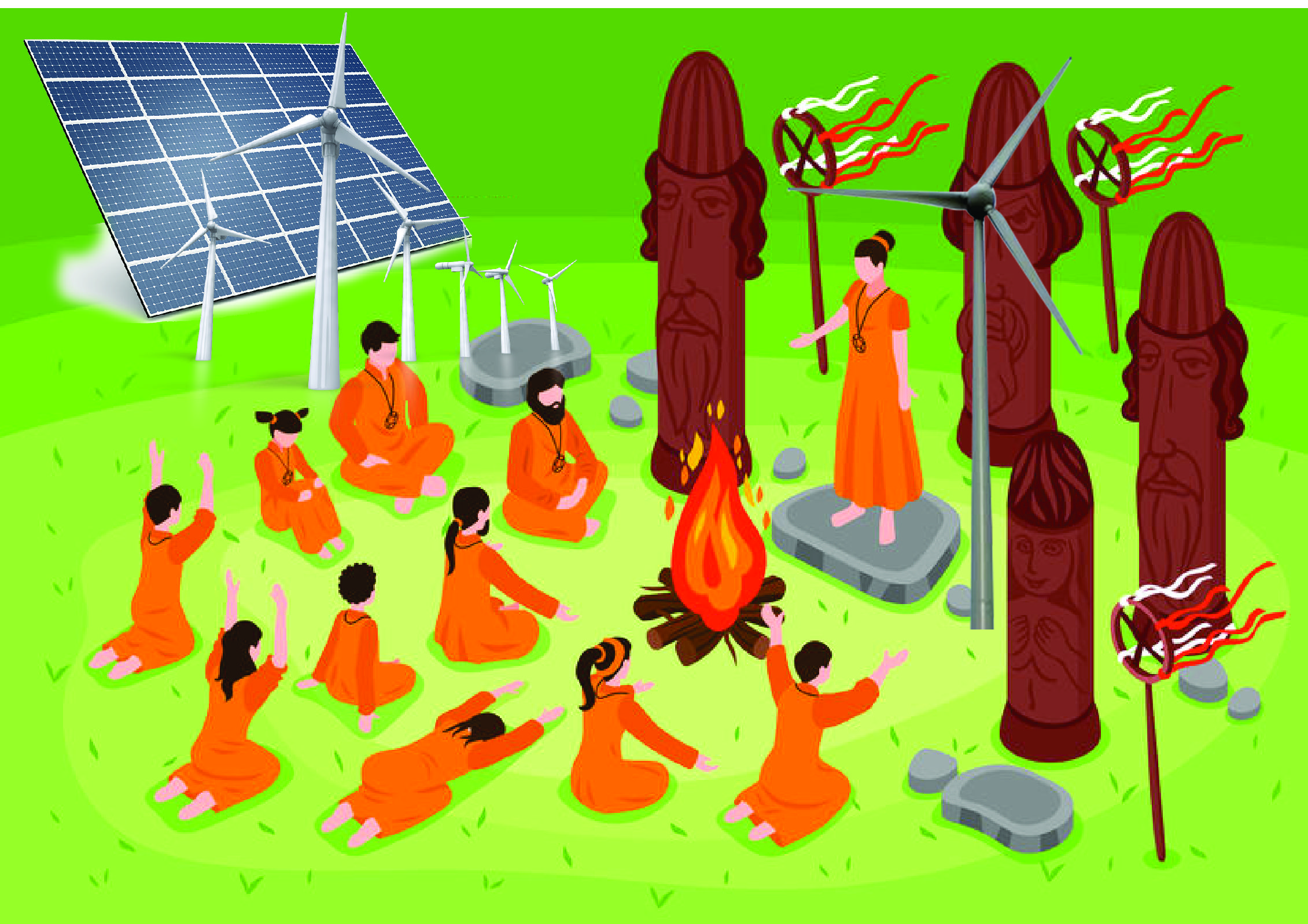As more and more in society have drifted away from a belief in God the void needs to be filled for most human beings. The environment, Crichton said, has filled the void for many. Conventional Judeo-Christian religion began with a perfect world called Eden. Today’s environmentalist sees sustainability as the salvation in the church of the environment, attempting to return to a fictional world of past perfection.
Michael Crichton, well known for his books Jurassic Park, Andromeda Stain, movies of those books and others and the award winning TV series ER, received his medical degree from Harvard but never practiced. Instead he wrote and directed movies and TV full time. He died of cancer in 2008.
He had a number if serious environmental concerns which lead him to write STATE FEAR a novel that addressed the realities of concerns about Global Warming. In September of 2003 he presented a lecture to the Commonwealth Club of San Francisco titled ENVIRONMENTALISM AS RELIGION.
Because our newly elected administration in Washington DC is doubling down on all environmental regulations as fast as possible, it is worth refocusing on the wisdom of Michael Crichton in order to place the actions of this administration into a perspective that will serve us well.
He stated initially that the greatest problem facing the world is not likely one you have considered. In his opinion it is separating truth from fiction. Bombarded daily, more today than when he was speaking, with information that can not easily be separated from either misinformation of disinformation. The first not necessarily intended to fool and the second definitely intended. In either case we have to think critically in order to decide for ourselves.
They often paint America of the indigenous peoples before the Europeans came as a dreamy world of unspoiled nature. Historians now tell us that was anything but true as little of the natural world was cared for. Herds of animals were destroyed, lands were burned and tribal wars were common and inhumane . Loving, peaceful and harmonious were not words to apply.
In short Crichton tells us “-the romantic view of the natural world as a blissful Eden is only held by people who have no actual experience of nature. People who live in nature are not romantic about it at all.” They know how difficult survival can be. The TV producers have been very successful showing this to us for years.
The truth is that almost no one wants to experience real nature. They want to spend a week or two in a cabin in the woods with screens and windows, or a river rafting trip for a few days with someone else doing the cooking.
One way Crichton says “to measure the prevalence of fantasy is to note the number of people who die because they haven’t the least knowledge of how nature really is.”
A decade ago I was almost one of them attempting a rim to rim Grand Canyon hike within 24 hours. Park rangers rescued me on the way out after 20 hours informing me there had been a dozen fatalities the previous year. I said I was an Ironman Triathlete and they laughed.
Crichton was the first to recognize in 2003 that one scare story was already loosing its grip on the world. That was over population. In the early 1990s the fear-mongers were predicting we were on our way to a population of 12 to 15 billion which we would not be able feed. The predicted numbers had then fallen below 10 billion while agriculture yields had risen dramatically eliminating fears of starvation. Today we have become more concerned with the economic problems created by a shrinking population.
It wasn’t just one prediction the so-called environmentalists got wrong, there have been a slew of them. He said they told us we would run out of oil and other natural resources and starvation would become the order of the day. What he told us in 2003 as to their absurdly wrong predictions for the past year of 2020 have proved ludicrous. They include a temperature rise of 5.4 degrees Fahrenheit, a doubling of CO2, elimination of snow on Mt. Kilimanjaro, a two foot sea level rise in Florida, end of ice on the Arctic sea and the end of glaciers in Glacier National Park.
Crichton asked his audience “with so many past failures, you might think that environmental prediction would become more cautious. But not if its a religion. Remember, the nut on the sidewalk carrying the placard that predicts the end of the world doesn’t quit when the world doesn’t end on the day he expects. He just changes his placard, sets a new doomsday date, and goes back to walking the streets. One of the defining features of religion is that your beliefs are not troubled by facts, because they have nothing to do with facts.”
Crichton, in this speech, was one of the first scientifically trained people to expose the complete fraud of the elimination of DDT to fight malaria. All the science behind DDT proved completely that it eliminated malaria with no negative impact on humans or birds. Millions died of malaria again once DDT was taken off the market.
Environmentalism needs to be absolutely based on objective and verifiable science, he said, it needs to be rational and flexible, apolitical and without frantic fantasies. He said we need to get environmentalism out of the sphere of religion and away from doomsday predictions.
At the end of his speech Crichton wisely said that if we allow science to be politicized “we will enter the Internet version of the dark ages, an era of shifting fears and wild prejudices, transmitted to people who don’t know any better. …..So its time to abandon the religion of environmentalism, and return to the science of environmentalism, and base our public policy decisions firmly on that.”
